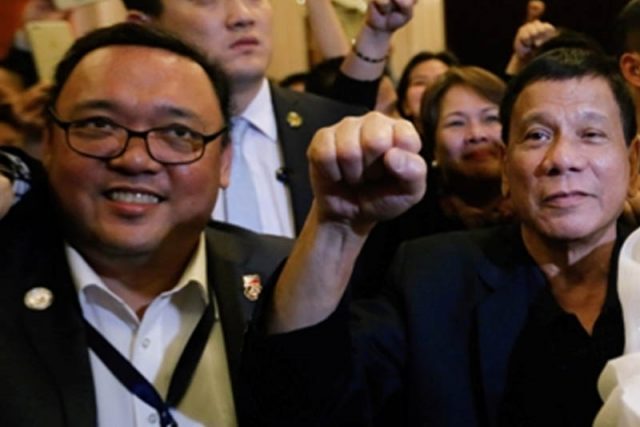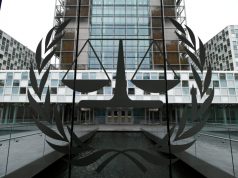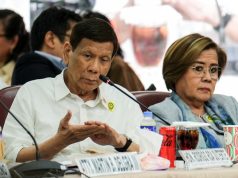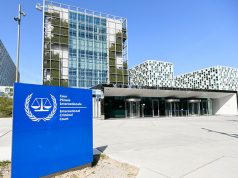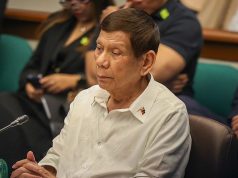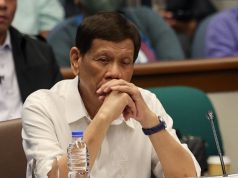MANILA, Philippines – Time flies fast and so do the political stand and views of some people, apparently.
Recently, Harry Roque, the spokesperson of President Rodrigo Duterte, warned the International Criminal Court against meddling in Philippine affairs, following the filing of a case against the chief executive’s bloody war on drugs campaign before the The Hague-based international tribunal.
Roque, who had gained fame as a noted human rights lawyer, said last December while he was in New York that the ICC must “resist attempts by some sectors to treat the court as a venue to pursue political agenda to destabilize governments and undermine legitimate national authorities.”
On Thursday, March 15, a day after Duterte announced that the Philippines would immediately leave the ICC by withdrawing the country’s August 2011 ratification of the Rome Statute creating the tribunal, Roque criticized the ICC and urged to take back its decision to start with the preliminary investigation of Duterte’s case and said that it was a “wrong move” because the (local) courts in the country “are working.”
Roque also assailed ICC Chief Prosecutor Fatou Bensouda, the one who gave the green light to the probe, claiming that the latter had shown” that she “can exercise power without accountability,” adding that Bensouda should be “the one to blame if ICC becomes part of the dustbin of history.”
READ RELATED STORY: Roque says Philippine exit marks ‘beginning of the end’ for ICC
Flashback to 2011 — on August 23 — when the Philippines became the 117th state to join the ICC — after the late Sen. Miriam Defensor-Santiago defended the Rome treaty on the floor and the Senate finally ratified the accord, whose aim is to end impunity through the court’s prosecution of individuals on genocide, crimes against humanity, and war crimes.
A few days after that historic moment, Roque, then a known human rights advocate and law professor, wrote a blog entry titled “ICC: At long last”, where he narrated how he, with “no less than 100 supporters of the court,” flocked to the Senate to “witness the much-awaited concurrence” to the Rome Statute.
The act “finally pave(d) the way for the country to be the 117th state party to the International Criminal Court,” he posted.
In the same blog, Roque recalled celebrating with the Philippine Coalition for the ICC by having “a feast at a fusion Filipino restaurant.”
2011: Harry thanked PNoy ‘for finally granting Filipinos effective remedy to impunity’
He even congratulated then President Benigno Aquino III, who “reversed the Arroyo policy of rejecting the ICC as a means of ending impunity.”
“On behalf of all victims of impunity, I express my gratitude to both the Senate and PNoy for finally granting the Filipino people an effective remedy to impunity,” Roque wrote.
He also explained in his blog the function of the ICC: “The International Criminal Court was created to prosecute individuals who may commit the most serious crimes against the international community.”
“These crimes include genocide, defined as an ‘intent to destroy in whole or in part, a nationality, ethnic or religious group of people’; war crimes, defined as ‘targeting protected individuals and resorting to prohibited means and methods of warfare; crimes against humanity, defined as ‘widespread or systematic attacks against civilian populations knowing that it is being directed against civilian populations’; and aggression, or the act of waging war.”
“The court will prosecute individuals without regard to sovereign immunity as a defense,” he added.
Harry: ‘Sitting presidents may be held responsible’ by the ICC
Also, Roque said the ICC “prosecutes individuals who are probably guilty of the foregoing crime on the basis of command responsibility.”
“This principle provides that military commanders and sitting presidents may be held responsible for crimes committed by their subordinates where they knew about it and failed to prevent their happening.”
Meanwhile in his Philippine Daily Inquirer column last month, former chief justice Artemio Panganiban pointed out that it was former University of the Philippines College of Law dean Raul Pangalangan, “the only Filipino now sitting as an ICC judge,” who recruited his former student, Roque, to the UP law faculty after the latter became a lawyer.
Roque praised Pangalangan’s ICC appointment
In fact, when Pangalangan was elected as judge of the ICC in June 2015, Center for International Law or CenterLaw, which Roque co-founded, issued a press release to congratulate Pangalangan on his post.
“Dean Pangalangan, who is a trustee of Centerlaw, brings with him to the world’s first permanent court designated to try the most heinous crimes a keen academic intellect and practical wisdom from his years of engaging with relevant issues as a leading member of the Philippine civil society,” the press release reads.
It also quotes Roque as saying, “We trust that with his presence in the ICC, our own people and our own government will have greater confidence in pursuing impartial justice before the international tribunal for egregious human rights violations committed in the Philippines that have remained unresolved.”
Roque resigned from CenterLaw when he became Kabayan Partylist representative. Meanwhile, CenterLaw has been pursuing cases in behalf of relatives of those killed in the administration’s tokhang operations.
In 2014, Roque eyed suing PNoy before ICC over Ampatuan massacre
Back in 2014, the Inquirer reported that Roque had planned to file a complaint in the ICC against then President Aquino for the latter’s supposed inaction on media killings, particularly the Ampatuan massacre.
CenterLaw “represents the heirs of 15 victims of the massacre at Ampatuan town in Maguindanao,” and “actively participates in the criminal cases filed against the 197 accused,” according to the law firm’s website.

